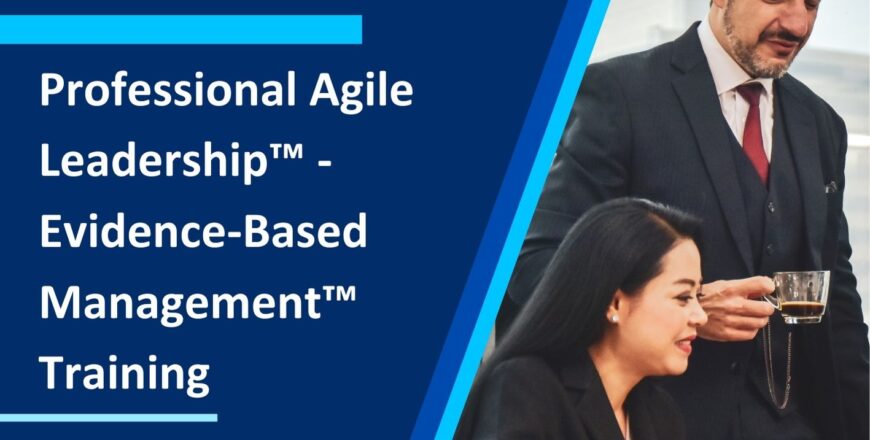
- Description
- Reviews
COURSE BRIEF
Course Name: Prove Your Knowledge of Evidence-Based Management
Duration: 1 Day
Delivery Method: Classroom / Virtual Instructor -training
Prove Your Knowledge of Evidence-Based Management
The Professional Agile Leadership™ – Evidence-Based Management™ (PAL-EBM) certification validates that you are a leader with a fundamental understanding of the Evidence-Based Management (EBM) framework. You have proven that you know how to guide teams toward continuously improving customer outcomes, organizational capabilities and business results.
PAL-EBM tests the knowledge needed to enable agility by identifying goals and related achievement measures, using hypotheses to identify improvement opportunities, performing experiments to test these hypotheses and using the resulting learning to improve.
While attendance is not a prerequisite, attending a Professional Agile Leadership – Evidence-Based Management class is highly recommended.
Earning this certification requires you to think about or interpret how you would handle scenarios and to apply your own experience in alignment with the principles of EBM.
PAL-EBM includes questions from the following Focus Areas as defined in the Professional Scrum Competencies as well as several additional topics which are not specifically named in the Scrum Competency Model.
Understanding and Applying the Scrum Framework:
- Empiricism – why and when empiricism is needed
Managing Products with Agility:
- Product Value – ways to evaluate the value that a product delivers
- Business Strategy – applying the concept of Unrealized Value to pursuing potential opportunities
- Stakeholders & Customers – applying the concepts of Current Value, Unrealized Value to stakeholder and customer management
Evolving the Agile Organization:
Portfolio Planning – understanding the concept of applying lean and agile principles for investing in pursuit of the greatest business benefit
Evidence Based Management™- understanding the concepts of the EBM framework
Additional Topics:
- Forming & Evaluating Hypotheses – running short, focused experiments to make progress toward desired outcomes
- Setting, Inspecting & Adapting Goals – how organizations seek and progress toward their goals in a complex world using empiricism
